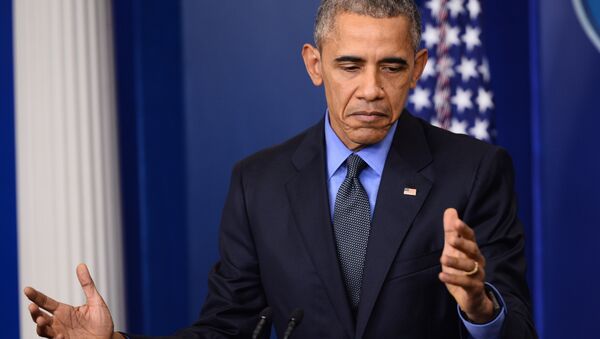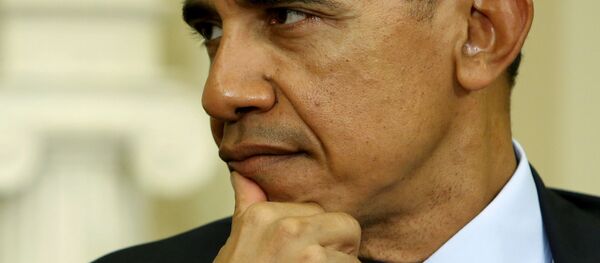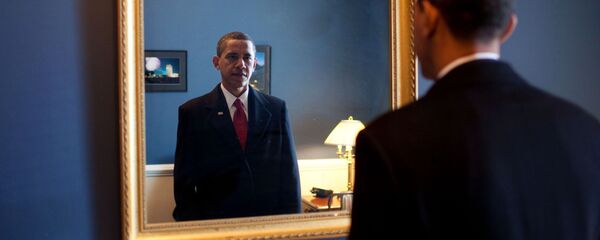To President Obama's credit he understands that the Middle East is no longer a region of "terrible" importance to US national interests and that the American president can do a little to make the region "a better place," Melvin A. Goodman, a senior fellow at the Center for International Policy and a professor of government at Johns Hopkins University, writes in his article for Consortiumnews.com.
However, Washington's foreign policy establishment does not share President Obama's stance regarding US political doctrine.
"The most fascinating aspect of President Barack Obama's unusual interview with The Atlantic was his self-declared liberation from Washington's foreign policy establishment. Now the establishment is striking back," Goodman notes.
Like other American hawks and neocon thought leaders, Burns criticizes President Obama for not enforcing a "red line" against Syrian President Bashar al-Assad back in 2013. He failed to admit, however, that as it later turned out, the US intelligence community had no evidence that Assad was behind the infamous chemical weapons attacks in Syria which stirred US neocons up.
In addition, Burns lambasted Obama for criticizing the Saudi royal family: "[It] never works to embarrass a friend publicly."
"Unlike Burns, President Obama understands that for too long Saudi Arabia (and Pakistan) has sponsored an intolerant variant of political Islam that has poisoned countless Muslim minds with virulent propaganda and recidivist violence," Goodman stresses.
Goodman underscores that it was an ill idea to oust Libyan leader Muammar Gaddafi.
"The US policy of regime change, which began in Iran in 1953, has never worked. See the Congo, Chile, Vietnam, Iraq, etc. etc. etc.," he remarks.
And of course American hawks are trying to scapegoat Barack Obama for ceding "too much ground" to Russia, Iran. But neither Moscow, nor Tehran poses any challenge to Washington, the former CIA analyst argues.
"The United States has lost credibility and power with its misuse of military force in the region, but Burns and the foreign policy establishment relies on the old shibboleths of credibility and force to make a case for the use of military power," he emphasizes.
While Washington's foreign establishment is seeking to beef up the US military presence in the Middle East and carry out more assertive foreign policy elsewhere, they ignore the fact that by this they will deal a serious blow to America's economy and endanger the lives of Americans.



